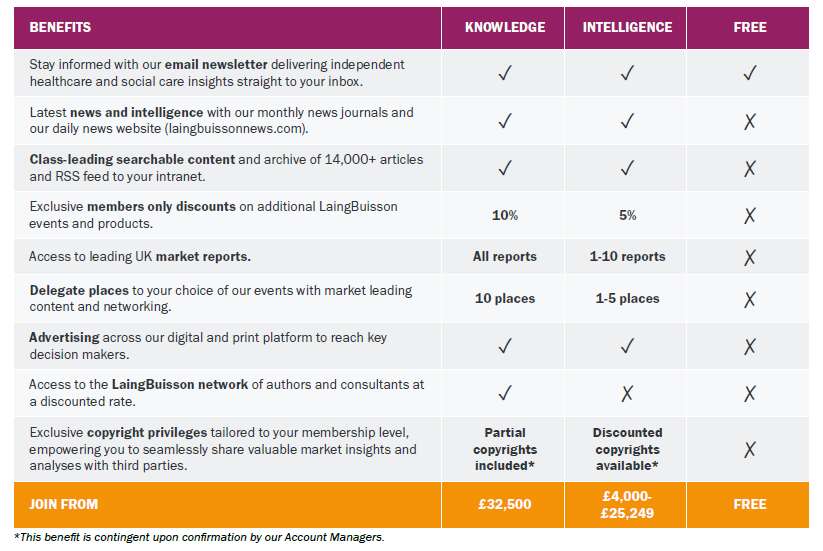The best year for some time… and then Covid. LaingBuisson publishes report on the Central London Independent Hospital market
LaingBuisson has published the 7th edition of its Private Acute Healthcare Central London Market Report.
The new report looks at the state of the market in the run up to the Covid-19 pandemic, calendar 2019 being the latest period for which complete data is available, and also looks at the impact that the pandemic had on this unique healthcare market in 2020.
In 2019, the Central London private acute healthcare market had its strongest year in revenue growth terms since 2014. The return of international and embassy patients, a growth in private medical insurance spend and an increase in oncology revenues drove growth of more than 7% during 2019, making it feel a bit like the ‘old days’.
The report also looks at the 2020 and tries to predict what the impact will be on hospitals financially. Independent hospitals are broadly expected to maintain their 2019 revenues (profits may be a different story). The crisis is expected to have had a severe negative impact on private patient units (PPUs).
Although the overall impact of Covid-19 on independent hospitals in central London may not be so great as expected, they will have lost out on international revenues and it will be hard to predict when those will return. NHS contracts, nevertheless, enabled them to keep going through the depths of the pandemic at a time when they may otherwise have been closed down.
Report author, Ted Townsend, said:
“What 2021 will hold for the Central London independent hospital sector is anyone’s guess. While pent up demand led to a noted rise in the number of patients through their doors in the later months of 2020, the third lockdown has made patients nervous and the first half of 2021 is expected to be quiet as a result.
“Nevertheless, central London private hospitals should continue to benefit from the restrictions being placed on NHS PPUs as well as lack of private capacity in hospitals outside of London, not to mention the ongoing backlog of private patients and the potential for new self-pay patients.
“At the same time, international patient numbers are expected to be slow to recover, partly owing to travel restrictions and partly because of the home country’s own domestic economic and pandemic issues. Furthermore, the potential impact of Brexit has been obscured in some measure by the pandemic. Whether this emerges as an issue, either through a loss of those jobs, which offer health insurance as a perk, to other counties, or through difficulties in staff recruitment, remains to be seen.”







